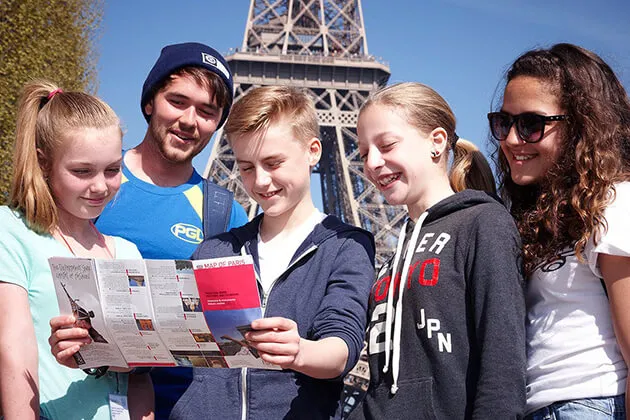
Travel is an old way of acquiring knowledge through practice. Teachers find it much easier to motivate and engage students in the educational process when they travel to an unknown place, immerse themselves in an extraordinary and exciting environment, and get to know new people, traditions, and customs. Not surprisingly, students like to admire the paintings and sculptures in the gallery rather than on the multimedia boards in the classroom. After educational trips, students will definitely want to share their emotions and impressions on their own, rather than turning to a essay writing services like https://essayshark.com/. It all sounds fascinating and interesting for students. But how can a teacher organize it all? Let’s figure it out.
Choosing a destination
The first thing you must do is choose where you will go with your students. This can be a long-term trip or vacation, or a one-day visit to another city, a national park, or a museum. We recommend sketching out a list of options and discussing it with your students. When planning an educational trip, you must clearly understand what educational goals it will help your students achieve.
Academic Objectives
The educational journey is organized to help students gain and consolidate new knowledge. Your goal as a teacher is to specify these goals, ways to achieve them, and check on what they have learned.
Documents
After choosing a destination, you must do your research and determine what documents each student and the group as a whole needs. This could be a visa if you are going to another country or permission from parents if your students are under 18. It’s best to find out about the necessary documentation package in advance, so you don’t face an unpleasant surprise on the day of your trip.
Transportation arrangements
Depending on the size of your group and your destination, you should choose an appropriate mode of transportation. This can be by train, plane, or bus. Plan your itinerary in advance if you are traveling by bus. If you will be traveling by train or plane, arrange a group transfer for all students to the train station or airport. It is best to keep all tickets with you so that no student forgets or loses them.
Insurance and safety measures
Insurance is an essential element of any trip because anything can happen, and you are responsible for the students. Moreover, make sure you know your students’ chronic illnesses (asthma, allergies, etc.) and have all necessary medications in your first aid kit. If you are riding the bus, make sure it is equipped with everything you need — fire extinguishers, first aid kits, cpr and first aid training, and working seat belts. Ideally, you should insist that the bus check all of its systems before traveling.
Accommodation
If your educational trip lasts more than one day, you must arrange overnight accommodations. This can be hotels, hostels, guest houses, or homestays if it is a language study trip. Book lodging in advance and create comfortable living conditions for your students.
Negotiate the rules of the trip
No one expects young students to have quiet nights and impeccable behavior. However, you should present them with a set of rules. For example, they can have fun all night, but they should be ready at 7 AM for breakfast since no one will wait until they get their beauty sleep. You can also introduce traditions to help bring the group of students together. For example, in the evening, you can all look through the pictures you took during the day together and discuss fascinating moments.
Food
Consider in advance where you will eat with your students. We suggest avoiding fast-food restaurants and offering young people alternative places with more nutritious meals. Exceptions to the rules include only local and extraordinary delicacies, as not trying them would be a real crime.
Trust is the foundation
The educational journey is built on trust. All the participants must trust each other. Teachers do not enter without knocking, do not control every step, and give free time. An educational trip is suitable for a mature team, each member of which will remember the trip for a lifetime.
Leisure
You must carefully plan your trip’s leisure time, taking into account unforeseen circumstances. Arrange for excursions in advance, reserve tables in cafes or bistros (it can be problematic to eat in a public place in a large group), coordinate with tour guides, think about entertainment for the students for the evening or options for how they can spend their free time. You should also take the weather conditions into account. If you were planning to visit an open-air museum, but it rained unexpectedly, you should always prepare a backup plan.
Organizing an educational trip is a time-consuming and responsible activity. The most important thing to remember is that there is always an academic goal that you need to help your students achieve behind a fun trip or holiday. A properly organized trip will turn into an interesting and exciting experience that your students will remember for a lifetime and definitely want to repeat. So if you have any doubts, it is worth it.